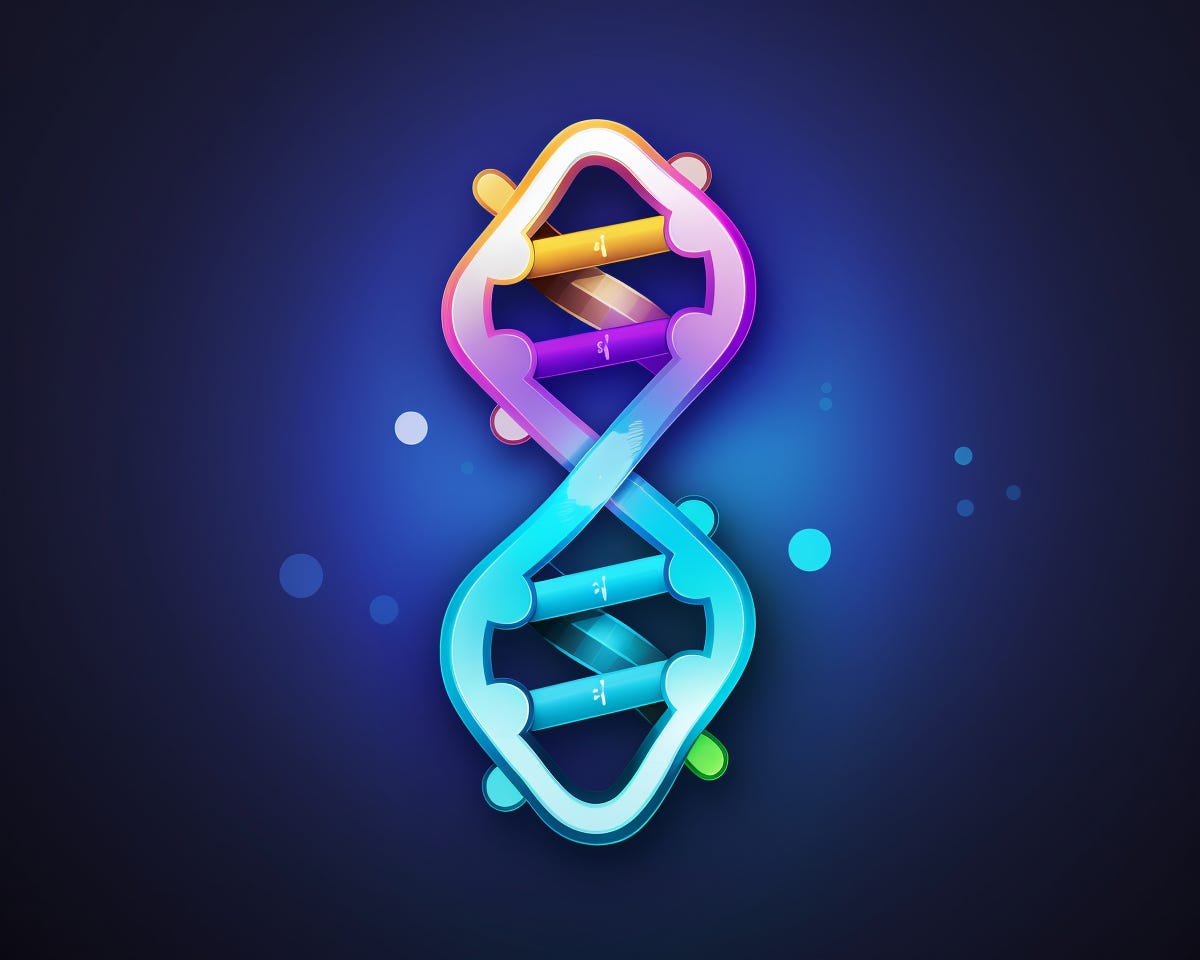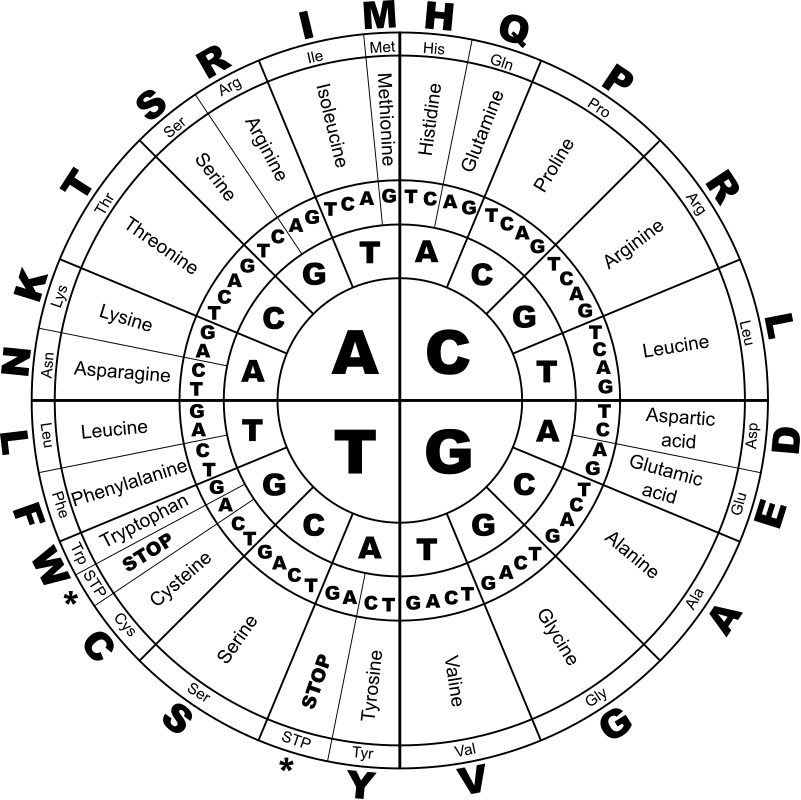Side Quest 2: Introducing Dogma
Developing a DNA word game to gain insights into the game-making process.
Welcome to The Gameful Scientist! This newsletter explores the intersection of bio and gaming. Enjoy!
I've been reflecting on my journey with The Gameful Scientist and the kind of community I want to create. My mission has three parts:
Reimagine the way we discover science and develop technologies through games.
Tap into the collective intelligence of players to tackle real problems in biotech.
Inspire the next generation to build with bio.
But how do I bring together game developers, gamers, and scientists?
"Meet them where they are." It’s a saying I picked up from a friend during grad school. She was referring to doctors connecting with patients to make better drugs, but it's become a guiding principle for how I approach building communities and companies.
As I delve deeper into the intersection between games and bio, I've noticed that many discovery games just aren't that fun to play, primarily because they aren't designed by game creators or developers. If if we want to use something as powerful as games for science, it's got to be built with the user experience in mind. It has to be fun and engaging. So, getting experts involved in game design is key.
As a scientist, co-founder, and former VC, I've developed many skills, but game dev isn't one of them. So, to better understand this world, I decided to create my own game. Usually, in this newsletter, I highlight games designed to solve real problems. But this one's different. It’s solely for entertainment — a personal project to help me get the hang of game development and communicate better with developers.
Central Dogma of Bio
The game I’m working on is called Dogma. It’s a biology-themed word puzzle game, inspired by the central dogma of biology, which explains how cells use genetic information. This principle has three steps:
DNA replication - DNA is copied for cell division.
Transcription - DNA code is turned into messenger RNA (mRNA) inside a cell's nucleus.
Translation - mRNA is "read" by ribosomes to create proteins.
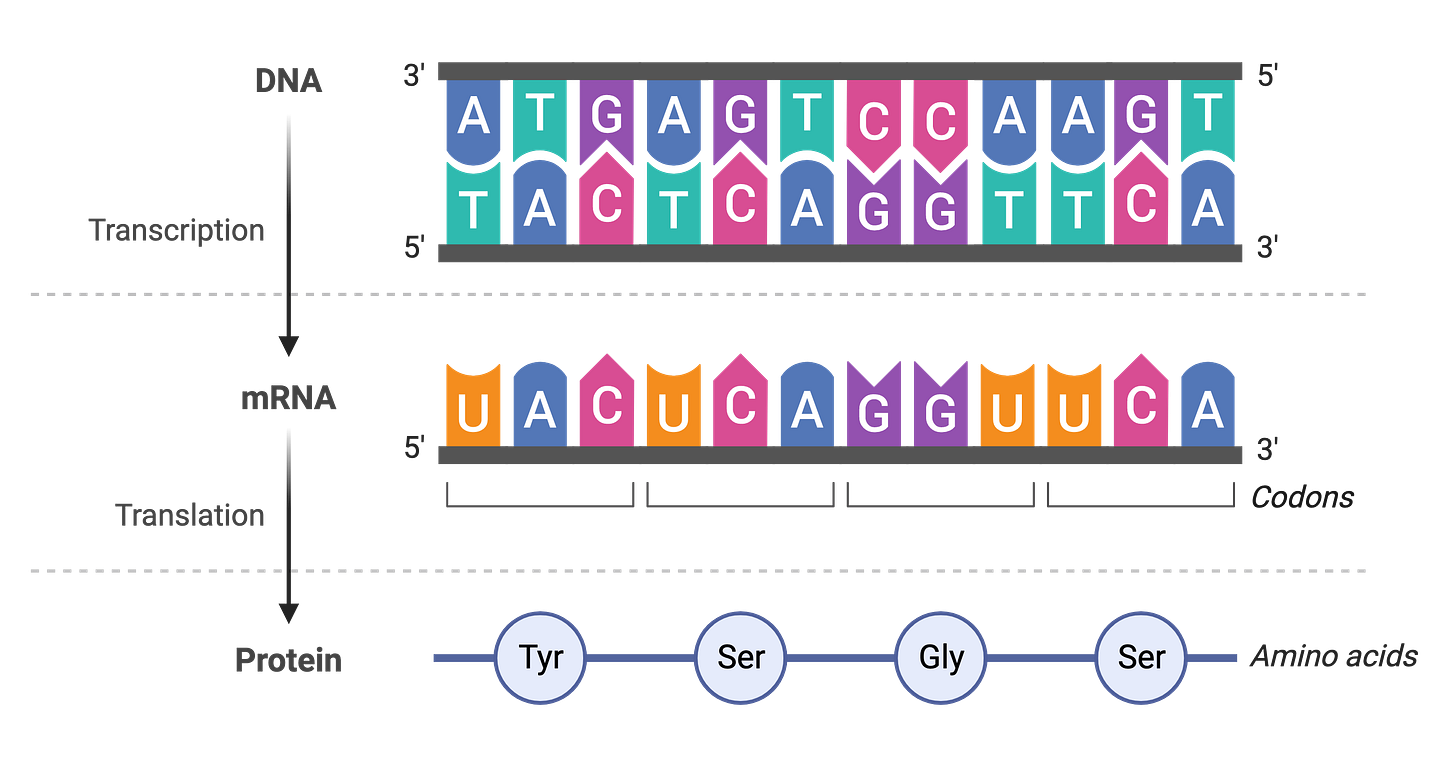
Key terms:
DNA: Molecule containing an organism's genetic information.
ACTG: The four bases of DNA (Adenine, Cytosine, Thymine, Guanine), represented by their initials (A, C, T, G).
Codons: Groups of three bases that code for a specific amino acid. There are 64 possible codons and 20 amino acids they can represent.
In short, DNA code is transcribed into mRNA, which carries genetic instructions to the cell's cytoplasm. There, ribosomes "read" mRNA to build proteins, the essential building blocks of cells.
Fun fact: My full name is Ashton Cornelius Trotman-Grant, and I have a twin named Aaron Claudius Trotman-Grant. We both share the same initials: ACTG. Fate?
This is a codon wheel. It helps us match every 3-letter codon with an amino acid, using just one letter to represent the amino acid.
Try this. Can you decode the riddle below?
I toyed with this game concept back in 2021:

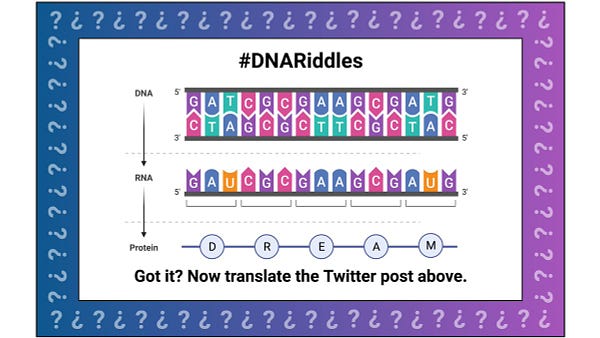
Twist Bioscience also did a fun riddle for April Fool’s Day in 2022. Can you guess what it says?

Introducing Dogma
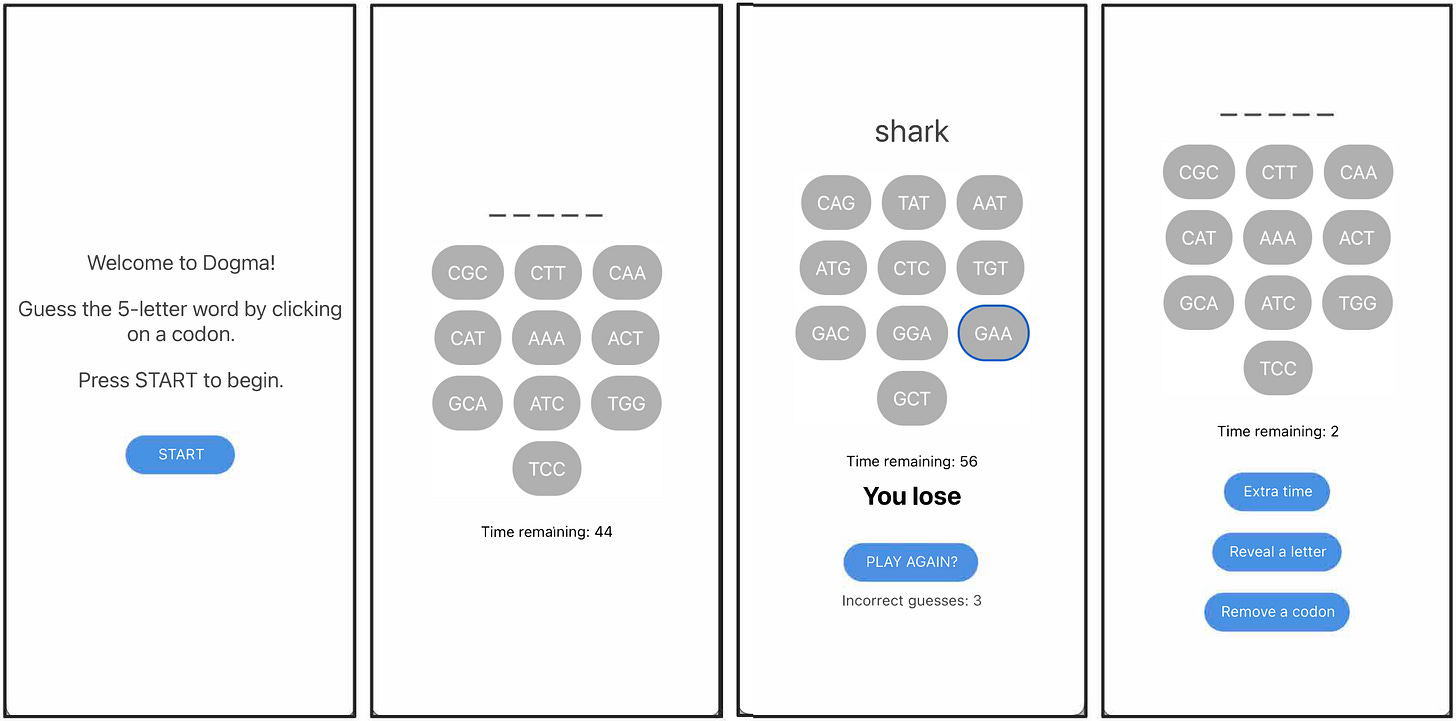
Think of Dogma as the Wordle for biology. The game challenges players to guess a five-letter word using codons.
Here are the rules:
Players are given a 5-letter word to guess.
Ten codons are displayed, including five correct and five incorrect ones, arranged randomly.
Players have 60 seconds to guess the word.
The game ends if you make three correct guesses or if time runs out.
When only 10 seconds remain, PowerUps become available: Extra Time (10 seconds), Reveal Letter, and Remove Codon.
If you guess the word correctly, you get a "You win" message.
If you run out of time or make three incorrect guesses, you get a "You lose" message.
Simple enough, right? This is just an MVP. I'm working on plenty of new features, but I wanted to #buildinpublic and gather feedback. I'll add new features based on your input to improve the gaming experience.
Created using JavaScript and adapted to React Native for deployment on Expo, I'm eager to hear your feedback and suggestions on how to make Dogma even better and more accessible. I'll provide weekly updates on Dogma's development, alongside our regular deep dives into topics at the intersection of bio and games.
In the spirit of building in public and transparency, I've encountered a few bugs when trying to share the game for mobile play! I'll soon have a shareable link for you all to play and test soon.
Join me on this journey as I work on developing my first game. Who knows? Maybe Dogma will become the next Wordle.
See you next week, for our regular deep dives :)
Thanks for reading The Gameful Scientist! Thanks to my roomie Marc Maniez at RGB for nightime programming lessons!
Feel free to contact me here or chat with me on Twitter @ATrotmanGrant :)




